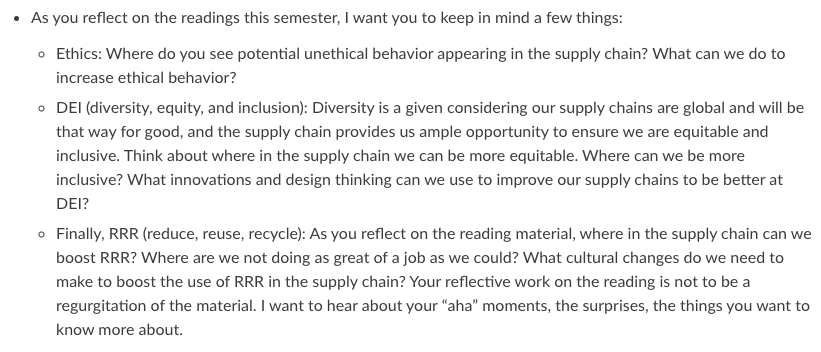Assessing EDI in the Supply Chain
Overview
Students reflect on how the global supply chain could be more equitable and inclusive, an optional component of each assignment and discussion in this sustainable management course.
Why Use This?
Students often enjoy contributing their own examples to a topic and face less pressure to do so when it isn’t required. Many students, therefore, responded to the reflection questions on EDI in this sustainable management course although they weren’t required to. Additionally, because real-life examples relevant to the topic of global supply chains are abundant, students who don’t work in the field could confidently pose creative solutions from their reading or personal experience.

- As you reflect on the readings this semester, I want you to keep in mind a few things:
- Ethics: Where do you see potential unethical behavior appearing in the supply chain? What can we do to increase ethical behavior?
- DEI (diversity, equity, and inclusion): Diversity is a given considering our supply chains are global and will be that way for good, and the supply chain provides us ample opportunity to ensure we are equitable and inclusive. Think about where in the supply chain we can be more equitable. Where can we be more inclusive? What innovations and design thinking can we use to improve our supply chains to be better at DEI?
- Finally, RRR (reduce, reuse, recycle): As you reflect on the reading material, where in the supply chain can we boost RRR? Where are we not doing as great of a job as we could? What cultural changes do we need to make to boost the use of RRR in the supply chain? Your reflective work on the reading is not to be a regurgitation of the material. I want to hear about your “aha” moments, the surprises, the things you want to know more about.